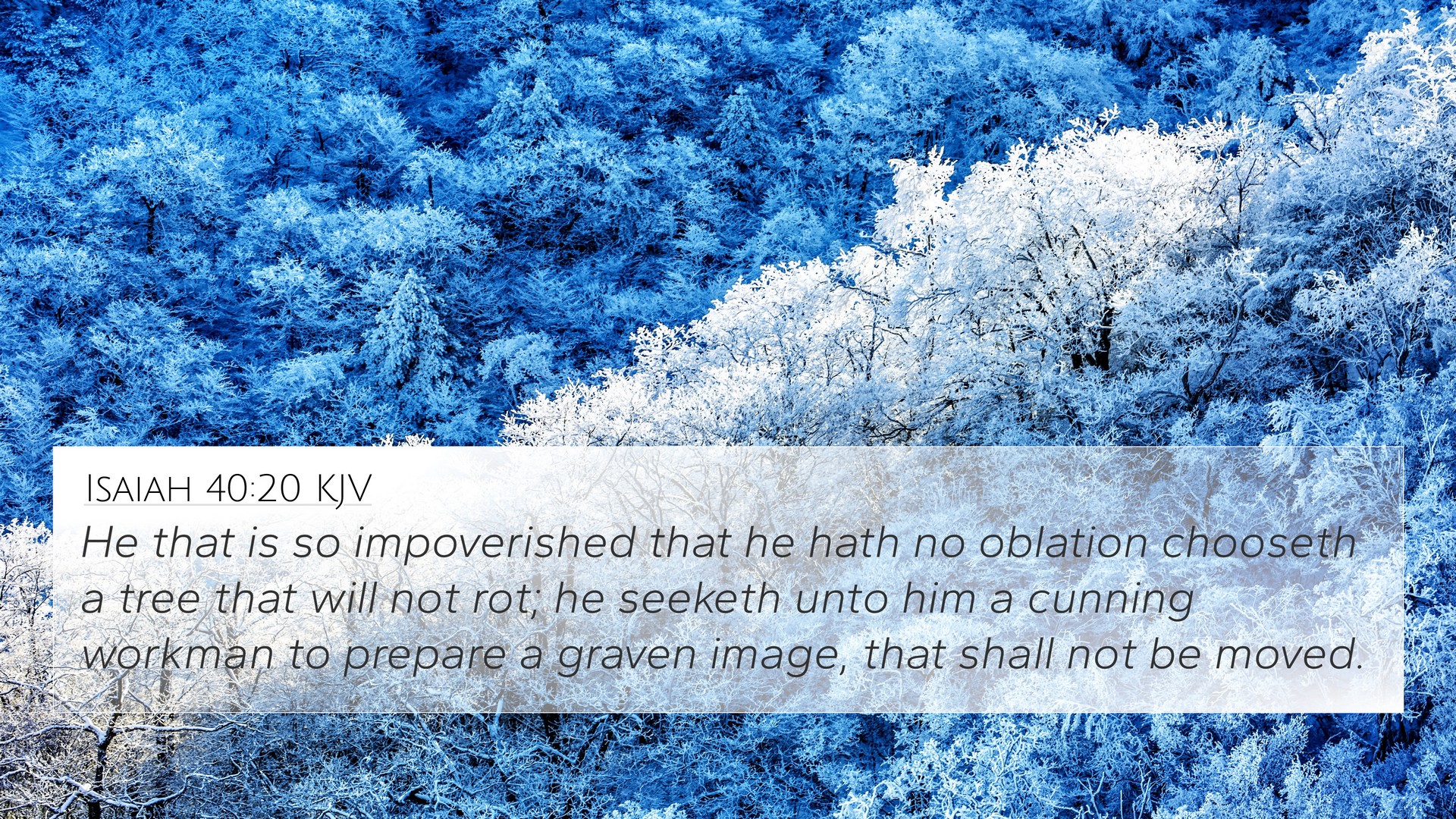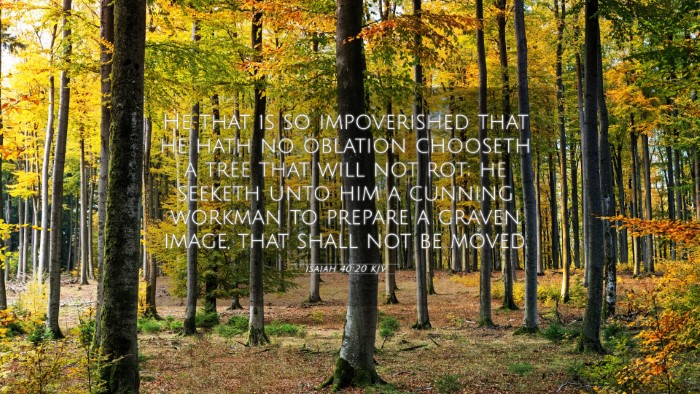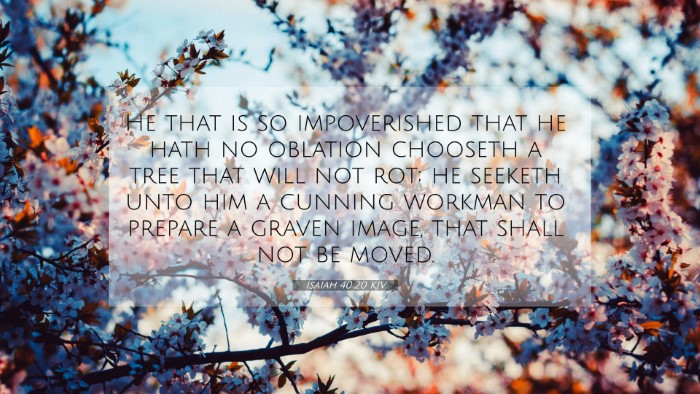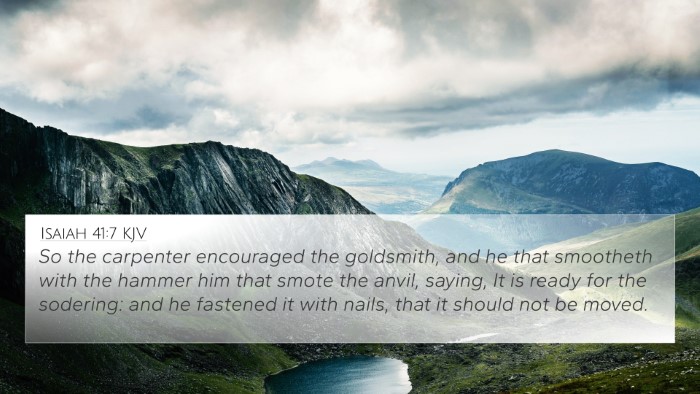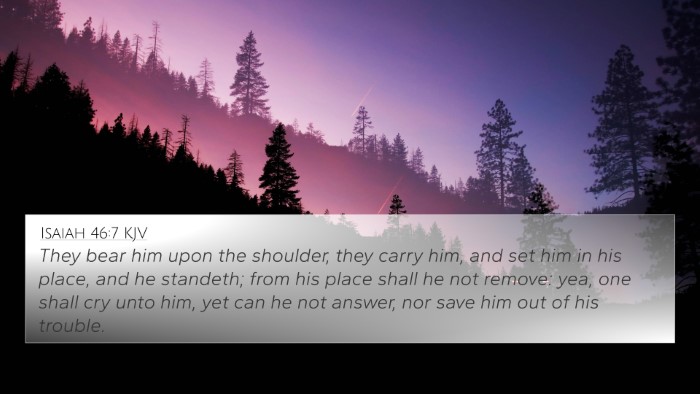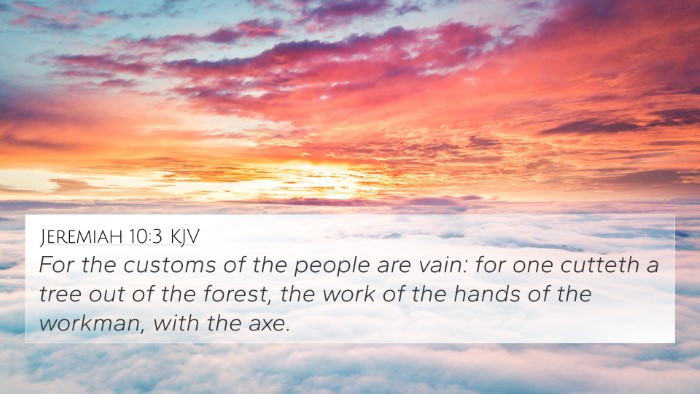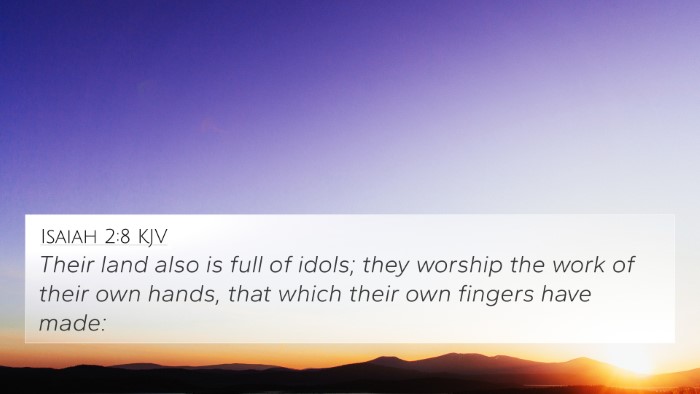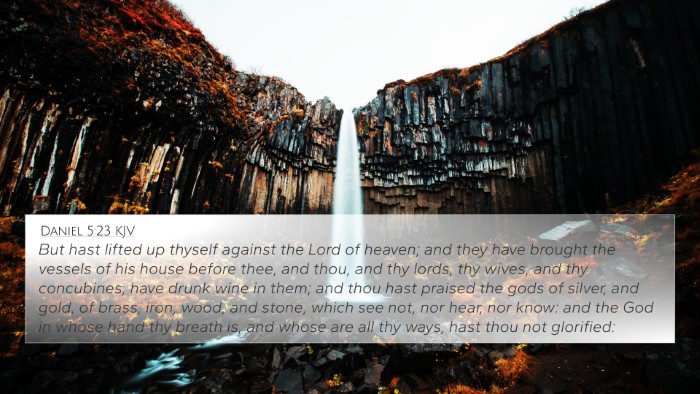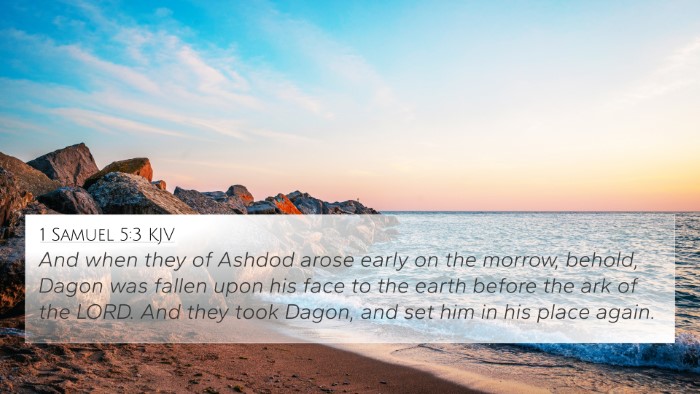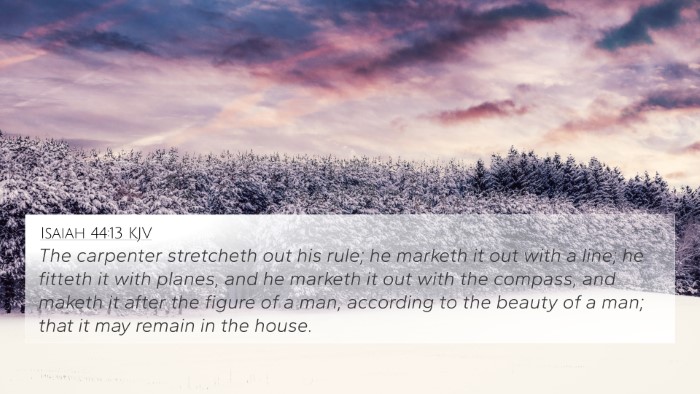Understanding Isaiah 40:20
Isaiah 40:20 reads, "He that is so impoverished that he hath no oblation chooseth a tree that will not rot; he seeketh unto him a cunning workman to prepare a graven image, that shall not be moved." This verse addresses the futility of idol-making and highlights the spiritual impoverishment of those who rely on man-made gods.
Interpretative Insights
This passage has been extensively commented upon in several public domain commentaries, notably by Matthew Henry, Albert Barnes, and Adam Clarke. It teaches that:
- Spiritual Poverty: The verse illustrates the state of spiritual lack, where people, driven by their need, resort to creating idols rather than worshipping the One true God (Henry).
- Idolatry's Futility: It signifies how the act of choosing a worthless idol reveals a deeper emptiness. The material chosen for idolatry (a tree) cannot provide the sustenance or strength as God can (Barnes).
- Human Craftsmanship: The text involves the action of a “cunning workman,” suggesting human skill is employed in creating something that holds no divine power (Clarke).
Key Themes
This verse emphasizes several core themes:
- Idolatry: A critical theme highlighted throughout the biblical texts, being directly addressed in places like Exodus 20:4-5 and Psalm 115:4-8.
- Spiritual Lacking: Similar to the sentiments in Ezekiel 18:30, where God calls His people to repentance and spiritual renewal.
- False Trust: This theme resonates with Jeremiah 10:3-5, which exposes the foolishness of trusting in handcrafted idols.
Comparative Verse Analysis
Isaiah 40:20 has notable connections with various scriptures that share similar themes:
- Exodus 20:4-5: This Law forbids the making of graven images.
- Psalm 115:4-8: Highlights the emptiness of idols made of silver and gold, emphasizing their inability to speak or act.
- Jeremiah 10:3-5: Details how people cut down a tree to fashion an idol, echoing Isaiah's lament on their choices.
- Habakkuk 2:18-20: Questions the profit of carved images that cannot breathe or respond.
- Acts 17:29: Paul explains that God cannot be represented by human hands or made of human workmanship.
- Romans 1:21-23: Describes how people exchange the glory of God for images resembling mortal men or animals.
- 1 Corinthians 8:4-6: Addresses the nature of idols and their powerlessness.
Cross-Referencing the Verse
When exploring cross-referencing biblical texts, Isaiah 40:20 serves as an excellent point of dialogue:
- Understanding this verse aids in exploring thematic Bible verse connections, particularly around idolatry.
- It invites a comparative Bible verse analysis with other scriptures that warn against placing trust in false gods.
- Utilizing a bible concordance can help locate other verses that discuss man-made idols and their consequences.
- The verse can serve as a springboard for an in-depth study on Cross-referencing Bible study methods related to idolatry.
Tools for Bible Cross-Referencing
Learning how to cross-reference the Bible effectively adds depth to study. Here are some tools and methods:
- Bible Cross-Reference Guide: A comprehensive tool designed to help explore thematic scriptures.
- Bible Chain References: This approach links passages through themes, allowing readers to follow ideas through the text.
- Cross-reference Bible Study: Engaging with this method can illuminate connections across different testaments.
Summary
Isaiah 40:20 serves as a stark reminder of the spiritual poverty that can lead individuals to create idols, illustrating the futility of man-made objects in providing true sustenance. By understanding this verse in the context of related scriptures, believers gain insight into the significance of worshiping the Almighty God alone. Utilizing cross-references enriches the study of such themes, enhancing one's grasp of scripture as a cohesive narrative.
